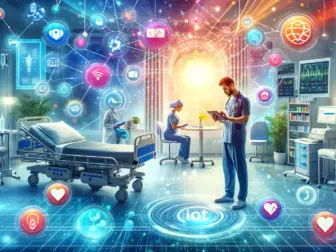Tag - data-driven healthcare
Data-Driven Healthcare: Revolutionizing the Future of Medicine
With the rapid advancements in technology and the ever-increasing amount of data being generated, healthcare is undergoing a major transformation. Data-driven healthcare is the practice of using data analysis and insights to improve patient care, outcomes, and operational efficiency. By leveraging data from electronic health records, wearables, genomics, and other sources, healthcare providers are able to make more informed decisions and deliver personalized care to patients.
One of the key benefits of data-driven healthcare is its ability to improve patient outcomes. By analyzing large datasets, healthcare providers can identify trends, patterns, and risk factors that may not be immediately apparent. This allows them to proactively intervene and provide targeted interventions to prevent or manage chronic conditions, such as diabetes or heart disease. For example, by monitoring a patient’s glucose levels in real-time using a wearable device, healthcare providers can adjust their treatment plan accordingly to optimize their health.
Data-driven healthcare also plays a critical role in improving operational efficiency within healthcare organizations. By analyzing data on patient flow, resource utilization, and staffing levels, providers can identify bottlenecks and inefficiencies in their processes. This enables them to streamline operations, reduce costs, and improve the overall quality of care. For example, by using predictive analytics to forecast patient demand, hospitals can better allocate resources and staff to meet the needs of their patient population.
Furthermore, data-driven healthcare is paving the way for personalized medicine. By analyzing a patient’s genetic makeup, lifestyle factors, and medical history, healthcare providers can tailor treatment plans to meet their individual needs. This approach not only improves patient outcomes but also minimizes the risk of adverse reactions to medications or treatments. For instance, by identifying genetic markers that indicate a patient’s likelihood of responding to a particular drug, providers can prescribe more effective and personalized treatment options.
Despite the many benefits of data-driven healthcare, there are also challenges that need to be addressed. One of the primary concerns is data privacy and security. With the vast amount of sensitive information being collected and shared, there is a risk of data breaches and unauthorized access. Healthcare organizations must implement robust security measures and compliance protocols to protect patient data and ensure confidentiality.
Another challenge is the interoperability of data systems. Many healthcare providers still use disparate systems that do not communicate effectively with each other, making it difficult to share and analyze data across different platforms. To fully realize the potential of data-driven healthcare, there needs to be greater standardization and integration of data systems to enable seamless data exchange and collaboration.
In conclusion, data-driven healthcare is revolutionizing the future of medicine by harnessing the power of data to improve patient care, outcomes, and operational efficiency. By leveraging advanced analytics and technology, healthcare providers can deliver personalized medicine, optimize treatment plans, and enhance the overall quality of care. While there are challenges to overcome, the potential benefits of data-driven healthcare are vast and transformative, shaping the way healthcare is delivered and experienced.
